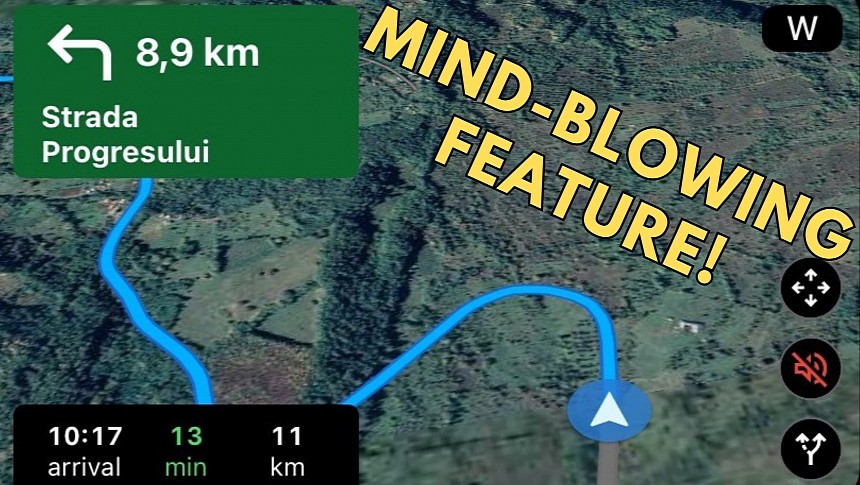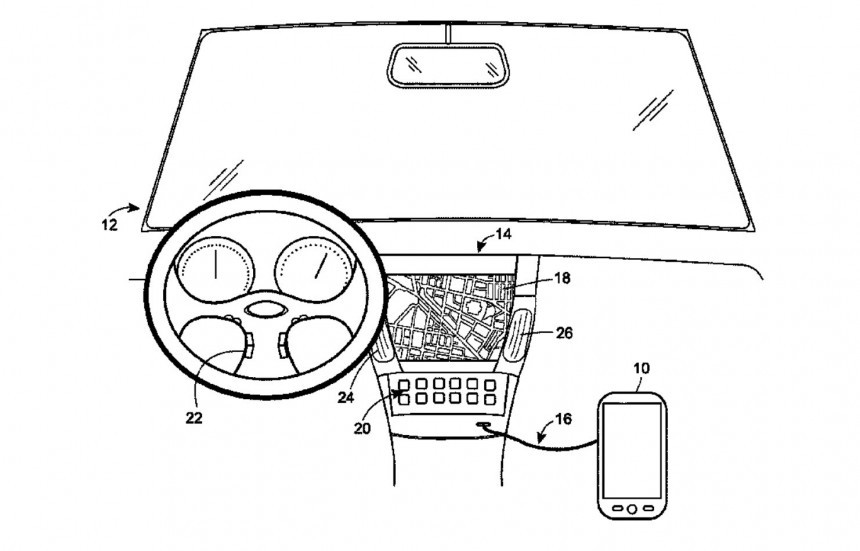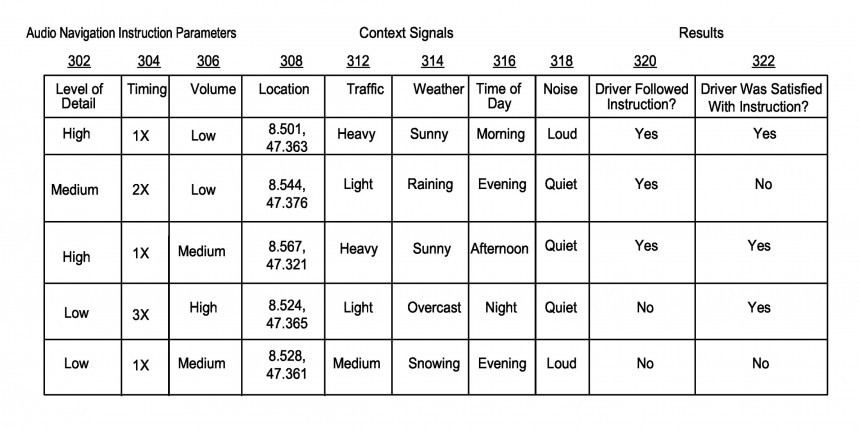Google Maps is already the world's number one mobile navigation software, but investments in this space make rivals like Apple Maps more advanced alternatives.
Apple's detailed city experience, now rolling out to users worldwide, includes new maps with information like sidewalks, crosswalks, trees, and buildings. The new maps are incredibly detailed, making navigation more straightforward, mainly on unfamiliar roads.
Google is also working on several innovations for Google Maps. Immersive mode fuses satellite data, Street View imagery, historical traffic patterns, and other information to create a realistic simulation of a specific location. Users can load the simulation in 3D, allowing them to explore the region with information relevant to a specific time or day.
In the meantime, the search giant is also exploring other ways to improve Google Maps, and one of its ideas has recently been exposed in a patent application.
The new technology is called "context-aware navigation voice assistant". It comes down to a system that provides users with audio guidance according to what happens in the car or around it. It might sound like rocket science initially, but Google's concept is brilliant, making it easier to follow turn-by-turn guidance in Google Maps.
When you use Google Maps today, the audio guidance offers basic instructions to follow the suggested route. If you miss a turn, Google Maps reroutes, adjusting the voice guidance accordingly. The application can't tell the reason for missing a turn, but it still looks for a new route to help the driver reach the defined destination.
The new technology addresses this shortcoming by always being aware of what happens around you. The context-aware audio navigation collects information from the cabin and around the vehicle using the onboard sensors, eventually processing the data to determine a reason for missing a turn. The analysis is conducted every time you don't correctly follow the suggested route, so if the new route sends you through the same location, Google Maps can adjust the voice guidance accordingly.
It might sound complicated at first glance, but here's an example of how the system would work.
Imagine you approach an intersection, and Google Maps tells you to turn left in 100 meters. Due to nearby factors, such as traffic noise or the kids in your car, you could miss the navigation instructions, eventually missing the turn. Google Maps can measure the noise levels in the car and collect vehicle data to determine the reason for missing the turn. The next time you get a voice instruction, Google Maps increases the volume, so you can hear the navigation guidance loud and clear.
The system uses a similar approach when you can't follow the suggested route due to other factors. If bad weather significantly impacts visibility, Google Maps can provide additional information on the next turn. Instead of hearing a basic turn instruction, the navigation application updates its route guidance with extra details on the turn, using a high level of detail. The command could be similar to "In 100 meters, turn left right after the shopping center."
Google Maps always monitors the noise in the vehicle and traffic conditions, using multiple sources of information to provide context-aware audio navigation.
Google explains that the navigation app can be connected to every little technology installed in the vehicle, including onboard cameras and sensors that help it detect traffic conditions. The reason is very simple: the application must be aware of what's happening inside and outside the car, so it can adjust its audio guidance accordingly.
Undoubtedly, Google's concept could raise more concerns among privacy advocates. The navigation app must listen to everything around you to generate context-aware audio instructions, so it collects sets of data regularly. Without such permissions, Google Maps can't run the analysis to determine the reason for missing a turn.
Google's idea makes sense in next-generation cars where software is deeply integrated into vehicle systems. Such a feature wouldn't work on Android Auto, as the mobile device powers the experience, so Google Maps can't obtain data from vehicle sensors.
On the other hand, it'll work like a charm on Android Automotive, where Google Maps already reads additional car information, including the battery range. Thanks to the integration, Google Maps can always tell the vehicle range and automatically suggest charging stops to allow the driver to reach the configured destination. Google Assistant also offers additional commands in an Android Automotive-powered vehicle, including adjusting the air conditioning settings or the power seats.
Google's concept is still in the patent stage. Still, it's probably a matter of time until the company starts its development, as context-aware audio guidance makes perfect sense in a smart car where Google Maps is already integral to the driving experience. You can find the patent embedded after the jump if you're interested in the technical details, including how the server-side processing of the collected data would take place.
Google is also working on several innovations for Google Maps. Immersive mode fuses satellite data, Street View imagery, historical traffic patterns, and other information to create a realistic simulation of a specific location. Users can load the simulation in 3D, allowing them to explore the region with information relevant to a specific time or day.
In the meantime, the search giant is also exploring other ways to improve Google Maps, and one of its ideas has recently been exposed in a patent application.
The new technology is called "context-aware navigation voice assistant". It comes down to a system that provides users with audio guidance according to what happens in the car or around it. It might sound like rocket science initially, but Google's concept is brilliant, making it easier to follow turn-by-turn guidance in Google Maps.
When you use Google Maps today, the audio guidance offers basic instructions to follow the suggested route. If you miss a turn, Google Maps reroutes, adjusting the voice guidance accordingly. The application can't tell the reason for missing a turn, but it still looks for a new route to help the driver reach the defined destination.
The new technology addresses this shortcoming by always being aware of what happens around you. The context-aware audio navigation collects information from the cabin and around the vehicle using the onboard sensors, eventually processing the data to determine a reason for missing a turn. The analysis is conducted every time you don't correctly follow the suggested route, so if the new route sends you through the same location, Google Maps can adjust the voice guidance accordingly.
Imagine you approach an intersection, and Google Maps tells you to turn left in 100 meters. Due to nearby factors, such as traffic noise or the kids in your car, you could miss the navigation instructions, eventually missing the turn. Google Maps can measure the noise levels in the car and collect vehicle data to determine the reason for missing the turn. The next time you get a voice instruction, Google Maps increases the volume, so you can hear the navigation guidance loud and clear.
The system uses a similar approach when you can't follow the suggested route due to other factors. If bad weather significantly impacts visibility, Google Maps can provide additional information on the next turn. Instead of hearing a basic turn instruction, the navigation application updates its route guidance with extra details on the turn, using a high level of detail. The command could be similar to "In 100 meters, turn left right after the shopping center."
Google Maps always monitors the noise in the vehicle and traffic conditions, using multiple sources of information to provide context-aware audio navigation.
Google explains that the navigation app can be connected to every little technology installed in the vehicle, including onboard cameras and sensors that help it detect traffic conditions. The reason is very simple: the application must be aware of what's happening inside and outside the car, so it can adjust its audio guidance accordingly.
Google's idea makes sense in next-generation cars where software is deeply integrated into vehicle systems. Such a feature wouldn't work on Android Auto, as the mobile device powers the experience, so Google Maps can't obtain data from vehicle sensors.
On the other hand, it'll work like a charm on Android Automotive, where Google Maps already reads additional car information, including the battery range. Thanks to the integration, Google Maps can always tell the vehicle range and automatically suggest charging stops to allow the driver to reach the configured destination. Google Assistant also offers additional commands in an Android Automotive-powered vehicle, including adjusting the air conditioning settings or the power seats.
Google's concept is still in the patent stage. Still, it's probably a matter of time until the company starts its development, as context-aware audio guidance makes perfect sense in a smart car where Google Maps is already integral to the driving experience. You can find the patent embedded after the jump if you're interested in the technical details, including how the server-side processing of the collected data would take place.














